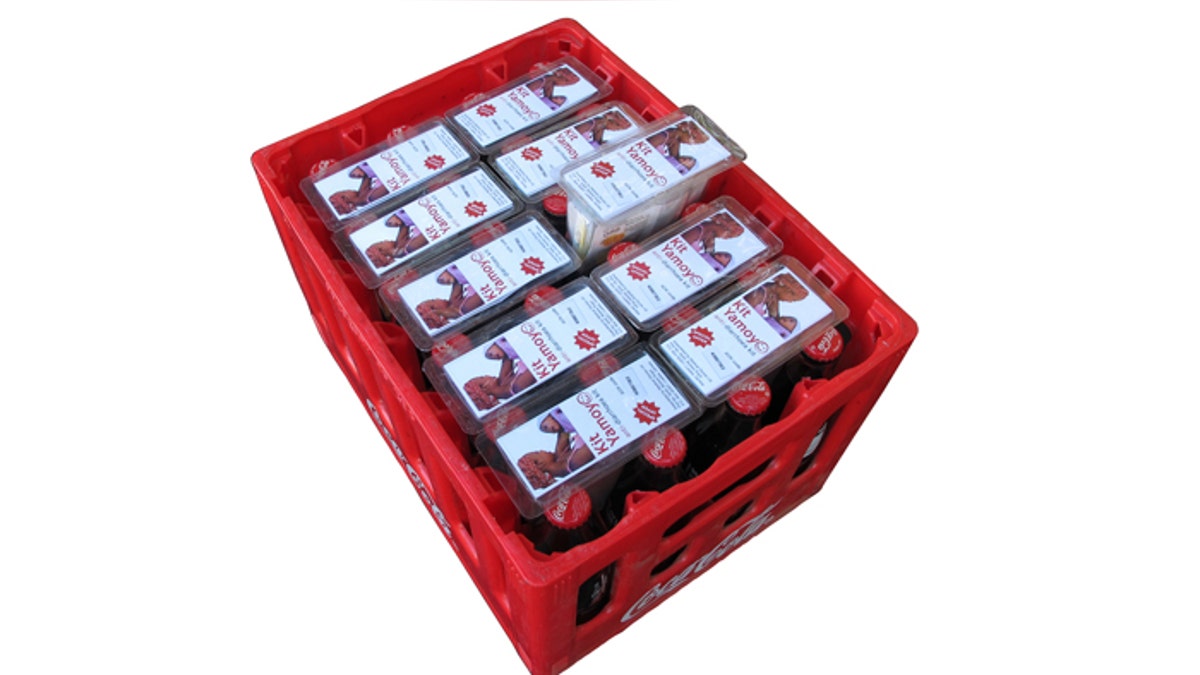
10 Kit Yamoyos fit into one crate of Coca-Cola and make use of the unused space between the necks of the bottles. (ColaLife/Simon Berry)
Coca-Cola is teaming up with the non-profit ColaLife to help better distribute much needed medicine along with Coca-Cola beverages to developing countries.
Beginning as an online movement in 2008, ColaLife became its own independent non-profit in 2011.
According to the non-profit’s website, Coke products are available almost everywhere in developing nations. However, nearly 1 in 9 children in these countries die before the age of 5 from easily preventable diseases, such as dehydration from diarrhea.
Utilizing a new packaging technique, ColaLife aims to distribute “social products,” such as oral rehydration salts and zinc supplements, to help sick children in need of medication. The medication will be packaged in newly developed AidPods, which are wedge-shaped to fit in-between the necks of the Coke bottles in a crate of Coca-Cola. The AidPods carry supplies to combat dehydration, as well as micro-nutrients. The package itself doubles as a water sterilization container when emptied.
Over the last three decades, child mortality figures in these developing countries have not changed. The team behind ColaLife hopes its initiative will start to make a difference in these areas of the world.
ColaLife’s first pilot plan will operate out of Zambia, Africa, and is called the ColaLife Operational Trial Zambia (COTZ). The distribution kits will be delivered to retailers in the crates and will cost roughly 5,000 kwacha – or just $1. Retailers are expected to make a 35 percent profit on the sale of the AidPods, while wholesalers will make a 20 percent profit.
If its trial run is successful, ColaLife hopes to expand its initiative on a much more global scale.
